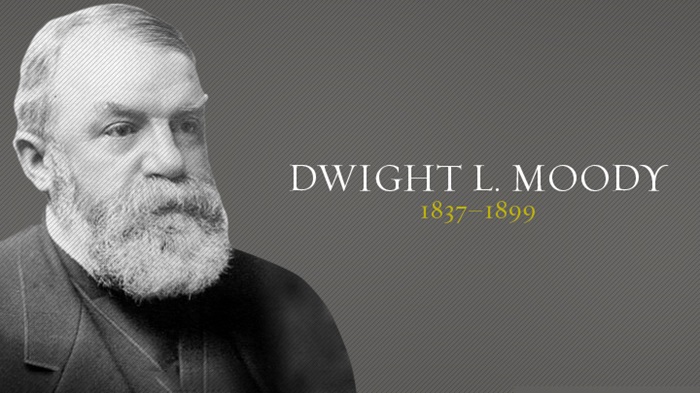Excellence in Attitude

Excellence in ministry is important; crucially important. Excellence in attitude may be the most important area to demonstrate this crucial value in.
for I have learned in whatever state I am, to be content: I know how to be abased, and I know how to abound. Everywhere and in all things I have learned both to be full and to be hungry, both to abound and to suffer need. I can do all things through Christ who strengthens me.
Philippians 4:11b-13
Paul is talking here about his ability to deal with circumstances and situations in life.
And that is really what attitude is – our response to life situations.
Victor Frankl, a Viennese Jew, was interned by the Germans for more than three years. He was moved from one concentration camp to another, even spending several months at Auschwitz. Later he wrote these words:
“We who lived in concentration camps can remember those men who walked through the huts comforting others, giving away their last piece of bread. They may have been few in number, but they offer sufficient proof that everything can be taken from a man but one thing: the last of human freedoms – to choose one’s attitude in any given set of circumstances….”
Victor Frankl
As Frankl points out rightly, we have the ability to choose our attitude- every single day. It has been said that life is 10% of what happens to us and 90% how we respond to it. And I think that is true.
Paul is saying in Ephesians that his attitude in all things is consistent, constant. No matter what circumstance he finds himself in, he has learned how to maintain a good attitude.
The Secret of Excellence in Attitude
The word “learned” in verse twelve means “to learn the secret, to be initiated”.
Some of you know our ministry Honest Deceiver Ministries that uses magic and illusion to share the gospel. And when someone wants to learn magic, they must be initiated – the secrets must be revealed to them. They must learn through practice and experience. Paul is saying that he has learned the secret of being content, of having a good attitude, through his life experiences. And then he tells us the secret:
I can do all things through Christ who strengthens me. Philippians 4:13
The secret of excellence in attitude is remembering and relying on the strength of Christ in me.
Direct Appeal Fundraising

In stark contrast to the faith-alone model of fundraising stands the method on the other end of the spectrum – direct appeal fundraising. The father of this model is the Apostle Paul, as we have already seen. Yet the champion of this model in modern times is Dwight L. Moody, the powerful American preacher from the late 19th century.
D. L. Moody was highly opposed to a faith-alone model of fundraising. In fact, he saw incorporation of it as a lack of faith. For Moody, faith meant that you had to do something to show your faith. The Bible says “faith without works is dead”, and Moody could not have agreed more.
“I show my faith when I go to men and state to them the needs of the Lord’s work and ask them to give to it”, Moody said.
And ask them he did.
R. A Torrey, Moody’s successor in the ministry said, “millions of dollars passed into Mr. Moody’s hands, but they passed through; they did not stick to his fingers”.
D.L. Moody was not shy about his direct appeal fundraising. He had no problems “talking money” with any potential supporters that he met or talked with. Again, he did not believe that asking showed a lack of faith; rather, it showed the presence of faith in his view.
D. L. Moody was notorious for directly asking whomever he met for money. He would ask beggars, princes, and everyone in between if they would like to have a part in what God was doing through his ministry. Moody truly believed that as God’s servant it was his job to ask for money. He said “Blessed are the money-raisers, for in heaven they shall stand next to the martyrs”. That is a very high view of fundraisers indeed! Whether you agree or disagree with him, one thing is for certain: D. L. Moody followed the biblical pattern of direct appeal fundraising, and God blessed him mightily for it with a ministry that impacted a nation.
So, as we have learned in this series of posts, it is important to have a clear perspective on the biblical and historical precedents of fundraising in order to make wise, God-honoring decisions. Direct appeal fundraising, bathed in humility, prayer, and ultimate reliance on God’s provision, is the foundation for successful missionary activity.
Here’s to better, biblical, effective fundraising that will honor the Lord, empower the giver, and strengthen the ministry!
Faith-Alone Fundraising

A legend of sorts has built up around George Müller and his faith-alone fundraising. Time has a way of taking the edges off of stories, and reducing complex people to simple ones. People quote the stories of God providing for his ministry solely through his faith alone approach. They tell how he never talked about his ministry; how he only closed himself in his room and asked God to provide.
Yet they create the doctrine of “faith-alone” fundraising around a story that is at best only half-truth. The stories that they base these claims on are not the full picture. It’s like seeing half of a painting and filling in the rest yourself.
Here are some facts about George Müller’s “faith-alone” ministry that we know from his own writings and speaking:
Müller told his “stories” in at least 42 countries around the world.
He travelled the world telling the story of his orphanage and how God was providing through prayer-alone.
It was only after he began speaking about some needs met that the wave of interest started.
Muller did not begin receiving a great sum of money until he began discussing the fact that he has asked God for such.
He published in the paper the names of donors and the amounts they gave
Hardly a “faith alone” strategy, Muller used a brilliant marketing strategy worthy of the best non-profit fundraisers today: he told people what others were giving, in order to encourage them to the same level of giving.
He had offering baskets near the front of the orphanage where he invited people to come and pray.
While he was certainly a man of prayer, he was also a man of opportunity. Muller made sure the people had an avenue and ability to make donations, including having visible spaces at his orphanage to make a contribution. While not directly asking for money, it is certainly indirectly asking.
In short, Müller did a lot of talking and promoting about his faith-alone process. The ludicrousness of building a “faith-alone” myth around this is easy to see. By publicly talking about only asking God and the subsequent provisions, he was violating his very premise!
I do not fault George Müller. He is not the one who promoted a faith-alone fundraising philosophy as the answer to funding your ministry. He was simply an honest, clever fundraiser who knew what to say to engage people with his righteous cause. How powerful to tell stories of how God answered prayers! It is those that followed him, those who sought to learn from him that have promoted the myth.
The danger is for those pupils that really believe the myth; that really believe that they are not to open their mouths and seek provision from God’s servants. In following this philosophy, they are self-defeating and possibly causing God to withhold the blessings He has for them.
If you think I am being to harsh, here is a quote from D.L. Moody on George Müller: “His emphasis on making no appeals was itself an appeal”. Moody recognized what we all need to recognize as well: that Muller was a great man, with great fundraising methods, who has been largely romanticized in our modern day. The faith-alone myth is built around a falsity, and the more fundraisers that know it, the better for them, and the better for the gospel.
Speaking of D. L. Moody, my next post will bring us in to a discussion of his method of fundraising, that of direct appeal.
For more context on the biblical guidance for fundraising, see the first installment of this fundraising series of blog posts.
For more information on the topic of Müller and Moody, see “More Than Money More Than Faith” by Paul Johnson.
Historical Precedents for Fundraising – Part 1

There is always much to be learned from history in any discipline, and fundraising is no different. As we look at historical precedents for fundraising, there are many prominent figures from the past that we can look to regarding raising money. The two most famous are arguably George Muller and D. L. Moody. Both men had tremendous ministries and made a lasting impact for the Lord. And both could not have been more different in their approach to raising money. We will take a look at both men and their ministries during this series of posts on fundraising, how they viewed fundraising entirely different, and what that means for us today. There are really two philosophies of fundraising represented by these two men: fundraising by faith alone and fundraising by asking.
Faith Alone Fundraising
You want to fund your ministry and have the money to do what God has called you to do. You also want to remain in God’s will and trust Him to provide, as He promises He will. Yet you struggle to find a balance between asking and waiting on the Lord, between soliciting funds and praying for funds. And then some good intentioned friend reassures you that “if it’s God’s ministry, God will provide. Just look at George Muller. He never asked for a dime and God fully funded his ministry a thousand times over”.
Wow, you think to yourself. I want to have that kind of faith in my ministry. And so you set your heart to practice “faith-alone” fundraising. You will not ask for money, only pray for it. You will not solicit funds, only ask the Lord and wait on Him to provide. This is a revelation to you and a major milestone in your growth and understanding.
Sound familiar? For many of you, it might. The above scenario sounds very spiritual. But unfortunately there are two glaring problems with a “faith-alone” philosophy of fundraising.
Problem # 1 – It is unscriptural
We have already seen in our previous posts, asking directly for money for your ministry is biblical. We have examples of the Apostle Paul doing exactly that. And yet, the faith-alone method, standing in direct contrast to the Scriptural method of fundraising, is extremely popular with many people. Put simply, anyone holding to a rigid “faith-alone” philosophy is operating in contrast to God’s Word. That is not a place I want to be in my ministry. I suspect you don’t want to be there either. Again, trusting in God alone sounds very spiritual – it sounds correct; it sounds biblical. But it’s not! Trusting in God alone and never asking for help from those who are ready to help you is not what God wants you to do at all.
It is important for us to examine everything in light of the Scriptures, including our fundraising methods. Just because something seems to be good, doesn’t mean that it is.
Problem # 2 – It doesn’t work (usually)
There are more cases of missionaries who rely on faith-alone missions having to leave the mission field than cases of them becoming wildly over funded. I promise. The stories that you hear about Muller and others are not to be used as a guideline or a benchmark. Yet that is exactly what many people do – they base their entire understanding and strategy of fundraising on a few select “miracle stories” from the past. The “miracle stories” of George Muller and a few others are not the normal scenario. But for many, many missionaries, the story ends in defeat because they did not follow clear, biblical principles of asking for money. Following historical precedents for fundraising can be helpful, if one discerns those methods in light of Scripture.
In the next post, we will look at the story of George Muller more carefully and discover some dangerous misconceptions about the man and his methods.
Biblical Precedents for Missionary Fundraising – Part 2

In the first post in this Missionary Fundraising series, we examined the Old Testament for Biblical precedents for missionary fundraising. Now, let’s look at the New Testament and see what we can learn.
The Life of Jesus
In the New Testament we also see very extensive teaching about servants of the Lord receiving their wages through ministry. For a first example, in Luke 8:1-3 we see that even Jesus and His followers received support for their ministry:
Now it came to pass, afterward, that He went through every city and village, preaching and bringing the glad tidings of the kingdom of God. And the twelve were with Him, 2 and certain women who had been healed of evil spirits and infirmities—Mary called Magdalene, out of whom had come seven demons, 3 and Joanna the wife of Chuza, Herod’s steward, and Susanna, and many others who provided for Him[a] from their substance. Luke 8:1-3
Jesus, our example, accepted provisions from others as a means to live. And He did so without reservation, apology, or guilt. Again, God is consistent throughout His Word on this topic. It is acceptable, even commendable, for God’s servants to receive their livelihood from the giving of others.
The Life of Paul
Though not as great an example as Jesus, of course, the Apostle Paul is our most thorough example in the New Testament concerning the support of ministry workers. Paul consistently asked churches to support his ministry, without reservation. For the Apostle Paul, it was a necessity for him to continue doing the Lord’s work.
whenever I journey to Spain, I shall come to you. For I hope to see you on my journey, and to be helped on my way there by you, if first I may enjoy your company for a while. Romans 15:24
And in this confidence I intended to come to you before, that you might have a second benefit— to pass by way of you to Macedonia, to come again from Macedonia to you, and be helped by you on my way to Judea. 2 Corinthians 1:15-16
In the two examples above, Paul is directly asking for the financial support of the churches. In short, he is saying “I need you to give me money, so that I can continue my work for the Lord”. This is clearly an example for us to follow in raising funds for our work. But lest we be confused or draw incorrect conclusions about ministry fundraising, Paul develops the most extensive treatment of fundraising in the Bible in 1 Corinthians.
The Greatest Fundraising Chapter
1 Corinthians 9 is perhaps the greatest fundraising teaching ever written. Paul outlines here several arguments for fundraising. So grab your Bible and keep this post open, and let’s see what Paul has to say in terms of biblical precedents for missionary fundraising.
Verse 7: Who ever goes to war at his own expense? Who plants a vineyard and does not eat of its fruit? Or who tends a flock and does not drink of the milk of the flock?
Paul makes a very powerful argument for missionary support here, using logical comparisons. What soldier is expected to pay for his own weapons, ammunition, armor, and transportation? The thought is as ludicrous today as it was in Paul’s day. The comparison is clear. Paul considers himself to be a soldier in Christ’s army, so why should he need to pay his own way? It’s not an arrogant assertion, it’s a logical, reasonable one.
And who among us tends a garden but does not feel a right to partake of the results?
In other words, if you spend your time developing something, you should be supported out of that development. This is the logical point that Paul is making, and it is God’s way.
Verses 8-10: 8: Do I say these things as a mere man? Or does not the law say the same also? 9 For it is written in the law of Moses, “You shall not muzzle an ox while it treads out the grain.”[a] Is it oxen God is concerned about? 10 Or does He say it altogether for our sakes? For our sakes, no doubt, this is written, that he who plows should plow in hope, and he who threshes in hope should be partaker of his hope.
Paul is not satisfied with logical arguments in this case, because, I suppose, he knows we may not be fully convinced. So he proceeds to make application using the Word of God to further solidify his argument. Paul is reaffirming here that Deuteronomy 25:4 was not written for the sake of the rights of animals (thought the application can be made there), but it was written primarily for full time Christian workers and all those that support them. In short, Paul is saying “don’t expect the full time workers around you to minister to you for nothing – they have to eat too!”
Verse 11: If we have sown spiritual things for you, is it a great thing if we reap your material things?
Perhaps the most striking argument Paul makes is contrasting spiritual things with physical things. The lesson is clear. What is more important? Your money or your soul? The fact that Paul (and missionaries) bring spiritual things to people through ministry makes it a very trivial matter that they should receive material, physical compensation while doing so. It’s almost nothing in comparison. That is Paul’s claim here, and one we should take to heart as we consider biblical precedents for missionary fundraising.
Biblical Precedents for Missionary Fundraising

Missionary fundraising gets a bad rap. Sometimes it is seen as a lack of faith, sometimes as deceptive, sometimes as pure begging. But there are biblical precedents for missionary fundraising that we will examine in this new blog series: The Ultimate Guide to Missionary Fundraising.
In the book of Numbers, God lays out a plan for His servants to be supported by the tithes of the people.
“Behold, I have given the children of Levi all the tithes in Israel as an inheritance in return for the work which they perform, the work of the tabernacle of meeting. 22 Hereafter the children of Israel shall not come near the tabernacle of meeting, lest they bear sin and die. 23 But the Levites shall perform the work of the tabernacle of meeting, and they shall bear their iniquity; it shall be a statute forever, throughout your generations, that among the children of Israel they shall have no inheritance. 24 For the tithes of the children of Israel, which they offer up as a heave offering to the LORD, I have given to the Levites as an inheritance; therefore I have said to them, ‘Among the children of Israel they shall have no inheritance.’”
Numbers 18:21-24
This set the precedent for spiritual leaders being supported in their work from that time forward.
God is here instituting the idea that full time ministry workers should actually receive some of the tithe – the money given to God – for their personal living expenses. That’s pretty amazing! It’s amazing because it shows how God cares for His servants, and also amazing that God would allow money given to Him – holy money of sorts – to be used for someone’s personal needs. But what that shows us is the weight of the office of a “full time worker” in the ministry. God views it as so important that He is willing to “share” the money that people have given to Him.
It is important to understand this Biblical precedent of missionary fundraising from both sides: as a giver and as a receiver. When we tithe to our local church, it is a fact that a good portion of that money will go towards paying the “salaries” of those who work in ministry “full time”. Depending on the size of the church, this may include pastors, assistant pastors, secretaries, receptionists, janitorial staff, and on and on. But the principle is that God has designated – declared that it’s okay – for these people to receive their wages from the money that comes to Him through the tithes of His people.
It’s also important to see it from the side of the receiver. I remember the first time I cashed a check as a full time missionary. A church had given me an honorarium for my ministry to them, I believe for $100 or so, and I went to my bank to deposit it. As I was going through the deposit process at the bank, I began to think about the gravity of the situation. This money that I was depositing was money that people had given to God. They had sacrificially taken money out of their wallets, given it in good faith to God through their church. And now I had it. I had their money. More correctly, I had God’s money. It was quite a realization for a 20-something missionary. I suddenly realized the responsibility that came with the privilege. What was I going to do with this money? Was I going to use it wisely? It was an epiphany moment for me; an “ah-ha” moment. I was a servant of God. He was taking care of me through other people giving in His name. Wow.
This is just an introduction to biblical precedents for missionary fundraising. This post really is laying the groundwork for understanding the support of full time ministry workers, including missionaries. Stay tuned for more posts coming soon that will delve into New Testament examples and connection to “active fundraising”!
The Hospitable Leader by Terry Smith

Just finished a fantastic book that presents a fresh take on servant leadership. It’s called The Hospitable Leader: Creating Environments Where People and Dreams Flourish by Terry Smith, and the book highlights how true biblical leadership should always reflect hospitality.
This book really expanded my thinking about the biblical concept of hospitality and how to incorporate it into my leadership. I especially appreciate the fact that the author references – on almost every page – biblical proofs and reasoning for his arguments and explanations. I found myself often opening my Bible and digging deeper into the topic at hand, and learning much in the process.
Here are a few highlights of the book from my personal notes:
Hospitable leaders are obsessed by helping others find their place.
The author really drives this point home in several ways, using examples from the life of Jesus and how He led hospitably. Jesus was always welcoming people, always coaching, always guiding, always helping people find their place in God’s plan. This is so important in the life of a believer. I’m passionate about people finding their Divine Ideal, and I’ve written and spoken about it extensively.
We cannot be anything we want to be. We can be anything we were made to be.
Like most kids I grew up hearing that I can be whatever I want to be. But that’s a dangerous misnomer. I’m going to try to stop saying this to me kids, and instead guide them to discover their spiritual gifts and talents and how God wants to use them.
We are wired to work with others and enjoy working with others
Jesus used questions because He wanted His followers to engage, to think, to feel, to participate. You get the sense that He is all about what we are doing together. Working with others on an important vision – co-creation – is important from the start.
Happiness is experienced in the anticipation.
Happiness is the pleasure we feel living our lives in light of ultimate meaning. Happiness is an eternal mindset based on our hope for the future as promised by God (Romans 5:1-2).
In conclusion, if these topics seems of any interest to you, I can highly recommend getting a copy of The Hospitable Leader.
How to Handle Culture Shock

Culture shock is the experience of overwhelming cultural unfamiliarity leading to disorientation, disillusionment, and often abandonment. Sounds pretty heady, right? It is. Culture shock is very real, and knowing how to handle culture shock is one of the most important skills a missionary can possess.
Culture shock has been widely studied and most missiologists agree that it is comprised of four phases: honeymoon, frustration, adjustment, and acceptance. I’ll not deal with each phase here, but rather focus on how a missionary can handle culture shock when it really hits – in the frustration phase.
Upon arriving in a new country for a long-term assignment, at first the missionary will experience the excitement of new sights, sounds, smells, and most exhilarating of all – new people! While this is all very positive and eye-opening, the missionary must make some choices during this phase before the very real frustration phase sets in. When it does set in (and it will!), you can be more equipped to navigate it using these choices.
Choose to Maintain Identity
One of the things that I often see missionaries do to handle culture shock is to over-compensate by completely letting go of their own home culture. In fact, there is ALOT of literature that suggests that missionaries should completely let go of their own culture and “become one of the natives”. But I don’t find this perspective in the Bible. In fact, I find something different.
I have become all things to all men, that I might by all means save some.
1 Corinthians 9:22
In this verse, Paul describes his lived-out philosophy of missions – adapting to the culture around him to reach the people in it. Yet at the same time in Acts 16:37-38 and Acts 22:25-28 Paul claims Roman citizenship to the authorities. It’s clear from these passages that Paul neither flaunted nor buried the fact that he was a Roman. He maintained his identity and relied on it when useful, all while adapting so well to the people around him that many of them (evidently from these passages) did not realize he was of Roman heritage.
Paul never forgot who he was or pretended to be someone else. He adapted to other peoples while maintaining his identity. The truth is, no matter how a foreign missionary tries to integrate into the culture (and they should try – hard!) – even though they make great strides, they will always be a foreigner, an outsider, in some ways. To ignore this fact is to ignore reality. Missionaries make a mistake in assuming that they have the ability to completely metamorphose into another people group. They don’t. In the end, it creates silliness at best and confusion at worst.
Choose to Live Sacrificially
Things are not going to go as you want them to in a new culture. Things will not work the way you think they should. People will not respond to you in ways you think are “normal”. These situations are especially true for missionaries serving inter-continentally. If a missionary is moving from one Southeast Asian country to another to serve cross-culturally, there will still be differences in culture. The same is true for a European moving to another European country. Or an African moving to another African country. But the differences will be more pronounced for a European moving to an African country, or an American moving to an Asian country, or an Asian moving to an African country. If that’s you, the sacrifices will be even more apparent.
If anyone desires to come after Me, let him deny himself, and take up his cross daily, and follow Me.
Luke 9:23
All of the cross-cultural difficulties and frustrations should be seen, rightly, as a sacrifice for the Lord. Jesus said that if we do not take up our cross daily we are not worthy to follow Him. For missionaries, this means experiencing daily things that you don’t agree with, you don’t like, and you don’t want to happen. By remembering that you are called to sacrifice your own desires every day – for the good of others – your perspective and subsequently your attitude will change.
In short, there will be cultural pieces that you will never adapt to, adjust to, or be able to accept as normal – choose to have a good attitude anyway and focus on the fact that this stress point is evidence that you are in the place God has asked you to be. A place of sacrifice. A place of service.
Choose to Rest
Culture shock is real. To pretend everything is normal around you when it isn’t leads to frustration, denial, and rejection. Life in a foreign country is hard, there’s no way around it. If you have moved from a “first world” situation to a “third world” situation, even more so. Things don’t work as they should. Tasks take more time and effort. Ministry is tiring in unique ways.
With this in mind, as missionaries in cross-cultural service, on a primary level we must first be resting and abiding in the Lord daily. That’s the baseline and non-negotiable.
We must also be observing regular Sabbath times to still our minds and bodies and be prepared for the next wave of ministry. We must control our schedules by learning to say no and using tools to help us maintain balance.
We must find rest in our families, our homes, and yes – even those people back in our home country. Technology makes it even easier to stay connected and find a send of home while you are far away.
Missionaries must be intentional about choosing to rest.
Joshua: The Encouraging Leader

Are you an encouraging leader? If you’re not sure, compare yourself to Joshua in this passage from Joshua chapter 17. In this chapter the scenario goes something like this:
Step 1 – Joshua has led the people to great victories and given them land of their own – the promise of God.
Step 2 – The people complain that the land is not good enough for them:
14 Then the children of Joseph spoke to Joshua, saying, “Why have you given us only one lot and one share to inherit, since we are a great people, inasmuch as the Lord has blessed us until now?”
Step 3 – Joshua responds and tells the people that if they are so great, they should go and take the land they want from their enemies (feel the sarcasm):
15 So Joshua answered them, “If you are a great people, then go up to the forest country and clear a place for yourself there in the land of the Perizzites and the giants, since the mountains of Ephraim are too confined for you.”
Step 4 – The people respond to this and say “well wait a minute – those guys are strong, we can’t handle it on our own! I mean, that’s not what we meant Joshua! Come on, man!”:
16 But the children of Joseph said, “The mountain country is not enough for us; and all the Canaanites who dwell in the land of the valley have chariots of iron, both those who are of Beth Shean and its towns and those who are of the Valley of Jezreel.”
Now – stop. What would your “Step 5” be?
I know what most of us would initially be thinking, myself included – “you guys had better figure it out, because I’m not helping you. I already did my part and you guys are ungrateful.”
But Joshua doesn’t do that. Instead, he encourages them:
17 And Joshua spoke to the house of Joseph—to Ephraim and Manasseh—saying, “You are a great people and have great power; you shall not have only one [f]lot, 18 but the mountain country shall be yours. Although it is wooded, you shall cut it down, and its farthest extent shall be yours; for you shall drive out the Canaanites, though they have iron chariots and are strong.”
A leader strengthens the faith of his followers by exhibiting his own.
Joshua exemplified this. He was not personally offended by their complaining. Instead, he saw it as an opportunity.
If someone that is following you has a poor outlook or weak faith, don’t give up on them. View it as a discipleship opportunity to challenge them and help them grow.
